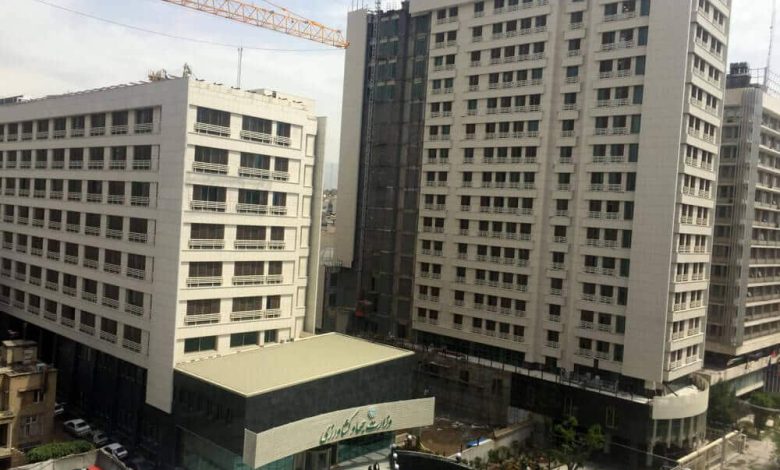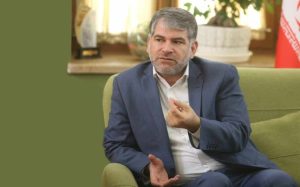Background on Destruction of Iran’s Agriculture by the Ministry of Agriculture Jihad

Written by
Staff Writer
Since the early years of their infamous rule, the mullahs, the Revolutionary Guards, their accomplices, and allies have plundered the national assets of the Iranian people. They have divvied up farmlands and ranches amongst themselves and the repressive forces. The so-called “Agricultural Jihad” Ministry was created in 2000 out of the merger of the two ministries of Agriculture and Construction Jihad. The latter was the body that plundered national capital, including Iran’s agricultural facilities, and poured it into Khomeini’s unpatriotic war.
They continued to destroy Iranian agriculture years later. According to the regime’s own statistics, during the dark rule of the mullahs, more than one million hectares of agricultural land were taken out of production and annually more than 20,000 hectares of the best agricultural lands were dedicated to luxury villas and settlements. As a result, thousands of agricultural units were shut down and more than two million jobs (nearly 40% of the agricultural workforce) were lost.
The disastrous projects carried out by the Ministry of Agricultural Jihad in cooperation and coordination with the IRGC have been the main cause of the destruction of Iran’s agriculture:
Looting of the country’s agricultural water resources by the Revolutionary Guards and the construction of water distribution tunnels
Destructive projects of the Revolutionary Guards, including illegal settlements, have led to the destruction of large agricultural lands
Lack of basic facilities and infrastructure in villages
Lack of government support for farmers, especially the heavy costs of materials and machinery and various fertilizers and fuel
Excessive import of agricultural and food products by officials, organs, and businessmen affiliated with the mullahs, which is done with the aim of looting oil revenues
Lack of support for farmers and domestic products and the elimination of subsidies, which has led to higher production costs and reduced power to compete
The repressive Basij network, which, along with the distribution mafia, is looting the resources of deprived farmers
Failure to pay the claims of farmers, especially wheat farmers.
Iran’s dependence on imports of agricultural products has increased exponentially in parallel with the destruction of domestic production. This level of dependence was 35% in 1984 and increased to 75% in 1989.
In 2012, Issa Kalantari, the former criminal minister of agriculture of the mullahs, admitted that “the agricultural sector has been plunged into the abyss of destruction.” And “six rural deciles have food supply and malnutrition problems that are parallel to African countries.” That is why hungry farmers sell their land so that they can survive for a few more days.

In this way, Iran’s agriculture is destroyed and the country’s territory is being looted by regime officials. The result of these lootings is that according to the regime organs, by 2025, Iran will become dry land. The mullahs have caused massacres in all political, economic, social, and even environmental aspects.
Seyed Javad Sadati Nejad
(Ministry of Agriculture – Jahad)
On August 11, 2021, Seyyed Javad Sadatinejad was introduced as the minister of agriculture – Jahad.
Personal history and education
Seyed Javad Sadati Nejad was born on June 22, 1972, in Sefidshahr (Nasrabad Kavir), Kashan. He did BSc in Natural Resources Engineering – Water Distribution Management, MSc in Natural Resources Engineering – Water Distribution Management, and Hydrology Engineering in Mazandaran University, Tarbiat Moalem University, and Moscow State University respectively.
Background
Javad Sadati Nejad was the representative of the 10th and 11th parliamentary terms for Kashan, Aran, and Bidgol constituencies in Isfahan province.
He was:
Former head of Tehran University Basij Professors (2013-2015)
Former head of the Basij of professors of universities and research institutes in Greater Tehran (2015)
Scientific Secretary and Coordinator of the Summit of Professors’ Basij Leaders Across the Country (2015)
Deputy of the High Commission of the University, Science and Technology of the High Basij Assembly (2014-2015)
Member of the Higher Education Commission in the Basij High Assembly (2014-2015)
Member of Shahrekord University Professors’ Basij (2003-2007)
دادن پالس #مذاکره به رژیم تروریستی #آمریکا،آنهم در شرایطی که غرق بحران کرونا و در آستانه جنگ داخلی است؛ مغایر با عقل، عزت، حکمت و مصلحت بوده و فقط باعث اعتبار بخشی به طرف مقابل میشود.
قاتل #شهید_سلیمانی ،قطعا آرزوی مذاکره با #ایران و گرفتن عکس یادگاری را با خود به جهنم خواهد برد.— سید جواد ساداتی نژاد (@drsadatinejad) June 7, 2020

